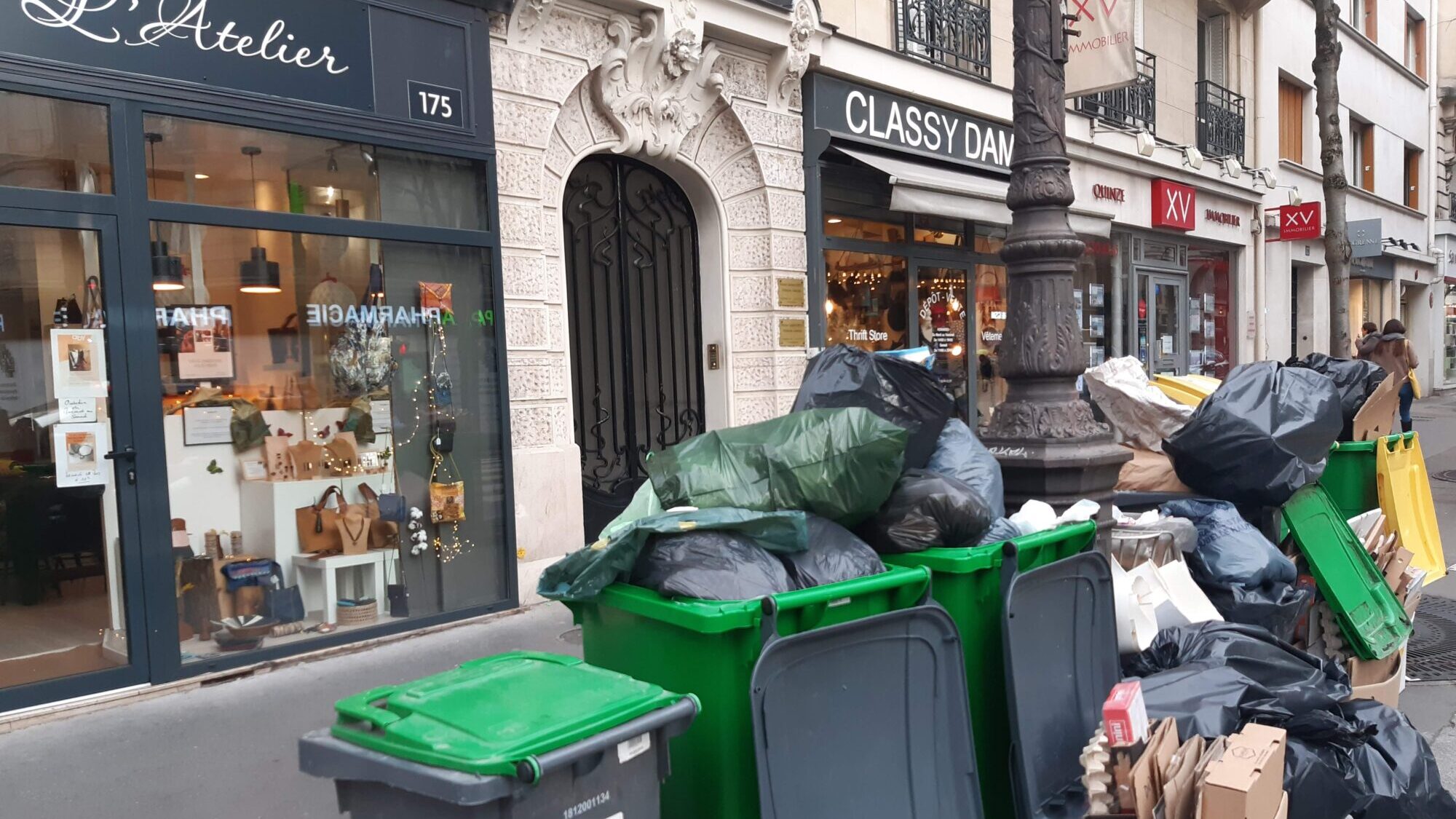
Photo: Hélène de Lauzun
For several days now, the city of Paris has been invaded—heaps of garbage accumulating in the streets and at crosswalks. The cause? A strike led by the capital’s garbage collectors who intend to protest against the national pension reform. They are contesting the postponement of their retirement age: a delay of years in a profession where difficult conditions have already contributed to a mortality rate higher than the national average.
Paris is not the only city concerned: eight other French cities are overflowing with rubbish. But in Paris, the accumulation of waste is reaching unprecedented levels that are beginning to pose serious public health problems, which Mayor Anne Hidalgo, who supports the strikers, refuses to address.
6,600 tons of waste in the streets were counted on the 9th day of the strike, which has just been renewed by the unions “at least” until March 20th. According to a statement from the CGT union, the strike concerns “all the workers in the waste treatment, cleaning, water, sewerage, and sanitation sector of the city of Paris.” And the strikers intend to strengthen the movement.
The situation varies slightly from one arrondissement to another, depending on whether collection is carried out by city hall employees or by private service providers. The boroughs managed by the town hall are the most affected. But where private service providers operate, collection also ends up being disrupted because the three incineration plants located around Paris are also blocked.
The situation is becoming critical in the capital. In addition to the obvious visual and olfactory nuisances, there is also the difficulty of getting around on the pavements, and the repulsive effect on passers-by and customers. Shopkeepers are already complaining about a drop in the number of customers in their shops and a drop in turnover. As the fine weather begins to return, many restaurant owners are having to give up serving on their terraces. Tourists, visiting the capital for a few days, look grim—so far from the image conveyed by Emily in Paris.
But the most serious consequences are the sanitary ones: the city of Paris, already submerged in rats in normal times, is now properly invaded. Hundreds of videos showing the swarming of rodents, accompanied by parodies of the cartoon Ratatouille, have been posted on social networks: “when reality exceeds fiction,” as the French expression goes.
Quelle ville magnifique sale à souhait,
— Jacky Bordage (@opppinions) March 14, 2023
Dans chaque rue un repas pour tous les palais,
Un bled soucieux de nos chers petits bourrelets,
La cerise sur le gâteaux, une grève,
Oh Mon dieu ! Enfin le #Paris de mes rêves !🐀😳
📽️ Ratatouille (2007) pic.twitter.com/jDOXQCtY0e
Paris mayor Anne Hidalgo, who is normally responsible for maintaining public health, is refusing to take matters into her own hands for the moment. She and her team are blaming the government and its pension reform for the current situation—which she intends to encourage—forgetting that this is not about national politics, but about fulfilling her local obligations.
Rachida Dati, the main opponent of Anne Hidalgo and mayor of the very posh 7th arrondissement of Paris, is calling for the requisition of garbage collectors to ensure a minimum rubbish collection service. Her arrondissement, which is managed by private service providers, has so far been relatively unaffected by the movement. Legally, if the mayor fails in her obligation to guarantee public health, the police prefect can intervene and give the city formal notice to take appropriate measures. And if the latter persists in its refusal, the police prefect can requisition “in Paris and the inner suburbs any goods or services and prescribe any useful measure until the public order problem has been resolved or the conditions for maintaining it have been met,” as stipulated in the general code of local authorities. Minister of the Interior Gérald Darmanin is currently pushing for this. Faced with the city hall’s refusal to act, the police prefect finally ordered a requisition of the workers on Thursday, March 16th.
For the moment, the situation is not about to improve. The city council had to admit that it has called on private service providers for occasional collections in certain cases deemed to be of “absolute urgency.” The Parisian population is gritting its teeth, but on the whole supports the strikers, as Guillaume Konrad, head of the Paris sewerage service, told the newspaper 20 Minutes: “We can see that public opinion is on our side, which is good. Even the police came by to encourage us,” he said.
In the meantime, the piles of bags and boxes are not creating the best effect, dumped in front of signs advertising the D-500 (500-day countdown) before the start of the Paris 2024 Olympic Games.
